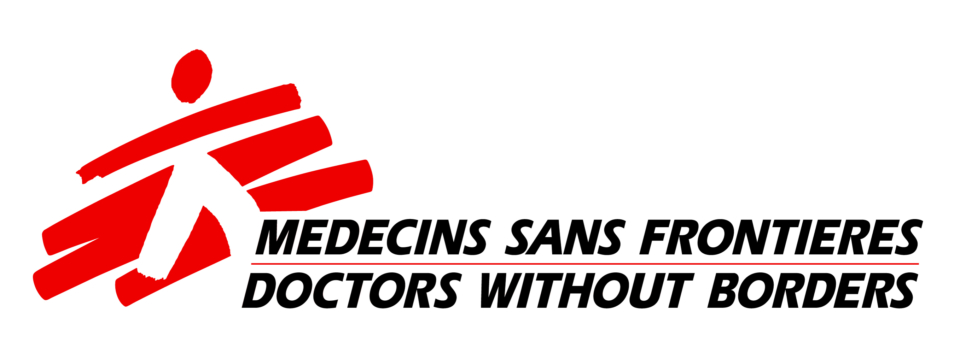Every year, an estimated 700,000 people die from antimicrobial resistance around the world. Today universally recognised as a global threat, antimicrobial resistance represents a heavy burden for healthcare systems all over the world, especially countries with low resources, such as South Sudan; To address antimicrobial resistance, Médecins Sans Frontières/Doctors Without Borders (MSF) launched its “Mini-Lab” initiative in Bentiu, Unity State, a transportable, self-contained, quality-assured, bacteriology laboratory that will significantly improve diagnosis relevance and treatment effectiveness; The Mini-Lab will also provide reliable data on local antimicrobial resistance patterns and allow clinicians to improve treatment protocols accordingly, aiming at improving the quality of care for patients.
When it comes to antimicrobial resistance, sub-Saharan Africa appears as one of the hardest-hit regions(Global burden of bacterial antimicrobial resistance in 2019: a systematic analysis). Persisting misconceptions and misuse of antibiotics, poor availability and quality of medicines coupled with a heavy lack of knowledge on drug resistance add a dangerous burden on already fragile or non-existent healthcare systems.
In South Sudan, MSF treats patients with suspicion of bacterial bloodstream infections, often in areas with unknown levels of antimicrobial resistance – a phenomenon that occurs when bacteria, viruses, fungi and parasites change over time and no longer respond to medicines. The lack of microbiology diagnosis and the uncertainty around drug-resistance rates lead to overuse and misuse of antibiotics among doctors and prescribers. They end up having to treat many infectious syndromes without precise knowledge of the cause or nature of the patients’ case.
“When clinicians cannot rely on proper diagnostic tools, especially microbiological tests, they will inevitably treat patients only according to the signs and symptoms they identify and to the overall clinical picture they manage to get”, says Letizia Ottino, MSF infectious diseases specialist. “Most of the time, they will have no choice but to use broad-spectrum antibiotics. In the long term, antibiotic resistance increases, infections become harder to treat, and disease and multi-drug resistant organisms are more likely to spread, putting many lives at risk.”
Much like the rest of South Sudan, Unity State is heavily impacted by this overuse of empirical treatment and the absence of laboratory facilities, posing a serious risk to public health in the region.
In Bentiu Internally Displaced People (IDP) Camp in Unity State, MSF is now operating its “Mini-Lab”, a standardised and adaptable all-in-one kit lab, aiming at setting up a robust clinical bacteriology laboratory. It was developed by MSF and institutional, scientific and industrial partners to be implemented within existing secondary healthcare facilities, in areas where there is no existing laboratory to collaborate with, nor the possibility to install a conventional one.
“Our microbiology lab is easy to set-up, easy to use and can fit various contexts”, says Ruth Olubiyo, MSF microbiology implementer in Bentiu, Unity State. “The different modules make it easily transportable to other MSF projects. After six weeks of installation, including the training of the lab technicians, it can already provide tangible results to the medical teams.”
In only two to three days after submitting blood samples, doctors have access to qualified blood results and can provide better targeted treatment to patients.
In a lower-resource setting such as South Sudan, surveillance data on antimicrobial resistance are a pressing concern – an issue that MSF Mini-Lab also addresses.
“In the long term, the microbiology lab also meets monitoring purposes”, says Isaac Mumbere Gibere, MSF Mini-Lab supervisor in Bentiu, Unity State. “We will be able to provide epidemiology indicators for local antimicrobial resistance surveillance, and monitor evolutions, predict patterns. The collected data will also be extremely valuable to detect hospital outbreaks and support improvement of infection prevention and control strategies in our facility.”
With sufficient data analysis, MSF aims to inform healthcare providers and organisations on antimicrobial resistance and patterns, supporting the Ministry of Health in reviewing and adapting treatment options, practices and policies, to face potential resistance among communities.
Distributed by APO Group on behalf of Médecins sans frontières (MSF).
Latest Stories
-
Government could seek more IMF funding, incoming finance minister Ato Forson says
6 minutes -
Man told he can’t recover £598m of Bitcoin from tip
22 minutes -
Gun-wearing leader sparks concern at Mahama’s inauguration
33 minutes -
Boeing and Google give $1m each to Trump’s inauguration
46 minutes -
TikTok to make final plea at Supreme Court against US ban
51 minutes -
Supreme Court rejects Trump bid to halt hush-money case sentencing
1 hour -
Man with crocodile skull in luggage arrested at Delhi airport
1 hour -
Mozambique tense as opposition leader returns from exile
2 hours -
Ivory Coast president signals he would like to run for fourth term
5 hours -
Case of second preacher arrested over damaged vehicles at Parliament adjourned
5 hours -
Washing bay attendant fined for impersonating military officer, possessing gear
6 hours -
Loading boy arraigned over alleged theft of driving mirror
6 hours -
Disregard Young Apostles’ statement dissociating themselves from me – Anim Addo
6 hours -
Businessman in court for allegedly defrauding 18 rent seekers of GH¢100K
6 hours -
Islamic Foundation for Humanitarian Services completes 50-bed maternity block at Ejura Government Hospital
7 hours

